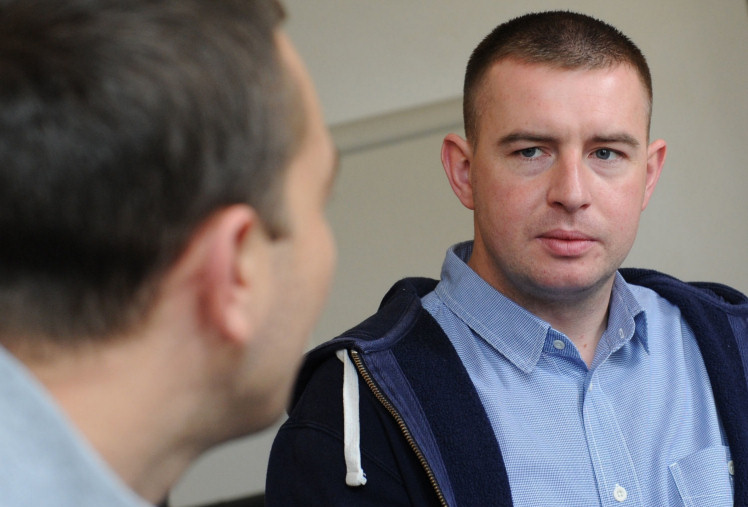
Stephen Hine is one of our Group Facilitators
The therapeutic arena can often be a highly emotionally charged setting. My role as a counsellor within THOMAS initially is to form strong, trustworthy relationships with clients so that together we can form a working alliance. Essentials to this are empathy, unconditional positive regard and congruence, these are the 3 core conditions as described by Carl Rogers the founder of person centred counselling. It is also vitally important to have an unbiased and non judgemental attitude in my approach so continuous personal and professional development is also an important part of my role working in this kind of environment. I need to be accountable and knowledgeable in the field so it is important for me to stay up to date with the latest empirical research and clinical data so my working day often does not end when I leave Witton Bank. Other benefits to working in this environment have been such that whilst studying for my degree I was in the fortunate position of being able to apply the learning of successful approaches to helping people everyday at work. The greatest gift though is being privileged enough to watch the true transformation of a person shedding the skin of a former self. To witness people overcoming difficulties, the rebuilding of a sense of self esteem, instilling hope back in to the lives of their loved ones and go on to create and live their dreams is the reason I wanted to work in the helping professions in the first place. Working here has given me that experience.
What techniques and approaches are being used in group therapy?
The building of rapport is the first vital stage of therapy these are often formed using person centred values. Thatís not to say that the work we deliver is purely person centred. It is important to have numerous approaches when working with people because nobody is ever completely the same and no one way works for everybody. We will run groups which are designed to educate clients around addiction and the behaviours and consequences of living that kind of lifestyle. These groups provide information that can usually be applied in direct relation to the clients own lives, instil self awareness and open up ideas for growth and change. They are also important groups to counteract a clientís denial in relation to their addictions. Relapse prevention groups, psychodrama workshops, process groups and 12 step workshops are all delivered. We will often come from the cycle of change model using motivational interviewing techniques such as empathic listening rolling with resistance and healthy challenging. Neuro linguistic programming, cognitive behaviour therapy and solution focused applications are often used throughout the group format and also on an individual basis. Our aims are to raise self esteem, confidence, encourage empowerment and coping skills as well as helping to rebuild broken relationships and family ties wherever possible sometimes using family interventions. Inner child therapeutic approaches will be used at certain times for example whilst working with traumatic childhood experiences.
